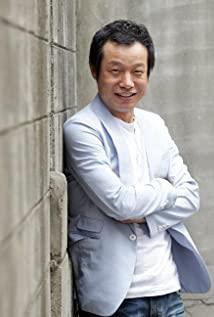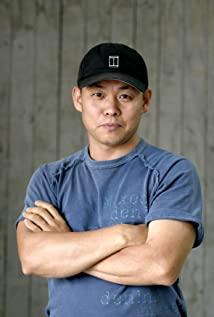At the beginning of the movie, the audience is presented with two innocent and beautiful young girls, one named Yu Zhen and the other named Jae Young. They are plain and simple, like carefree girls who pass by you and me every day, chatting online and showing smiles.
However, the difference is that they go online with a strong purpose, the purpose is to capture clients. Is this what is known as aid communication? Korean director Kim Ki-duk's films have always shown the morbidity and ruthlessness inherent in this icy world. How could he be calm and let the two girls go this time?
At the beginning, the camera is brought out from the computer screen, talking, price, location. The computer camera is aimed at Jae-young's bright smile, the camera's picture is displayed on MSN, and the double lens is presented in front of us. The girl talking was not the one the computer camera was pointing at, which created a little suspense. Why do they do this?
The girl who was talking to the customer on MSN was Yu Zhen, but Jae-young was a girl who voluntarily sold her body with a bright smile on the computer camera. Yu Zhen used her identity as Zaiying to contact the clients, and Yu Zhen used her identity as Zaiying to inform them of the time and place. However, it was not Yu Zhen who betrayed her body, but Zaiying.
Why do they take such a form, why does Yu Zhen exist, and why do they do it? Are they not good friends? This is another suspense created by the director.
After every transaction in Jai Ying, she handed over all the money to Yu Zhen. Yu Zhen felt so wronged and resentful every time she made a transaction in Ying, but she kept all the money in the notepad and didn't need a penny. . After each incident, Yu Zhen helped Zaiying to take a shower, expressing her pain and dissatisfaction. However, all this seems to be extremely reasonable to continue to exist and happen.
Two girls, doing all this for a trip to Europe.
When I solved these suspense, my heart was hit by a powerful emotion, and I almost burst into tears. The friendship and feelings of adolescence have always been extremely precious, just because it is overflowing with extreme persistence and the effort of completely escaping from reality. As time passes and people grow up, everything will be wiped out, and it will never come again.
People who are loyal to reality in the mundane world are not suitable and cannot understand such a film. If people choose such absurdity when they are young, they will understand the deep love and meaning in it.
[Basumida]
In Ying's mind, it is not a sin to aid in communication. She imagines herself as the holy prostitute of India, Basumida, and stubbornly believes that what she does is a sacred thing, because she brings those The real happiness of men. She simply and happily enjoyed every transaction, patiently understood and listened to the troubles and worries of those men, and told Yu Zhen everything without reservation. Yu Zhen's affection for Jae-young is beyond friendship, more similar to a kind of guardian love. She didn't want Yu Zhen to fall in love with any man who had physical contact, what she wanted was possession. Possessing Jae-ying's simple smile, possessing Jae-ying's eternal attachment to herself, and possessing Jae-ying's emotional world.
Jae-young's simple smile that blooms from beginning to end always makes people feel horribly desolate. Her first reception, she escaped without clothes, Yu Zhen dragged her and ran away, along the way, Jae Young was laughing, what was she laughing at, and what was worthy of being so funny. What happened, shouldn't it be an extremely tragic event in the eyes of ordinary people? Jae-young resolves all sorrows with a bright and eternal smile, Yu Zhen's sadness can be imagined, and Jae-young's smile makes her feel more indebted and miserable.
Shot:
The two are running and playing in the park, the red maple leaves are scattered around, the shot is beautiful and artistic, and then the picture pauses on the humanoid sculpture in the park, the two girls sit next to the light blue sculpture, the whole picture is still , even like stagnant water, but the movements of the two people changed from movement to stillness, until they overlapped with the whole big picture and stopped.
I don’t know why, I especially like this scene, life and death, stillness and movement, check and balance each other, those statues full of religious meaning exist in different postures, glowing with a dazzling light blue like a clear sky, as if to symbolize the two. The girl's pure and untouched emotions.
The camera stopped on the pig's hand that was discarded by Zaiying, and gave a close-up. As anyone knows, this feature must have meaningful implications, must have something to do with the next plot twist, and most of the time it's a bad hint.
At the moment when Ying jumped off the building, the bright smile was mixed with nervousness and anxiety, which was terrible. When Yu Zhen carried the bloody Zaiying on her back, I completely forgave this girl from the bottom of my heart. The self-mutilation of her friend will surely make her suffer for the rest of her life, even if there is no legal and moral punishment.
"Basumida" died after all, and her face still maintained that eternal smile after her death.
[Samaria]
Yu Zhen devoted her trembling body to the music producer for the wish of Jae-young before her death, but she failed to fulfill Jae-young's humble and kind wish.
"My heart is on the bright moon, but the bright moon shines on the ditch." The music producer's soul is so unbearable and insignificant under Yu Zhen's desperate dedication. After all, Jae-young did Basumida in wishful thinking, and the world will not be grateful or missed.
Good - always a sadness under Kim Ki-duk's cold and arrogant gaze.
So, Samaria reappeared.
Luke[1] 10:30-35
Bible Story: A Jew was rushing from Jerusalem to Jericho. He encountered robbers on the way. He was caught and beaten by the robbers and then stole his belongings. wail. A priest passed by the injured passerby, just looked and waved away. After a while, a Levite passed by the road and saw the wounded, but he ignored it and left. When a Samaritan saw it, he rescued the wounded, carried him on a donkey to an inn, and left the money to pay for the medical bills, saying that if it was not enough, he would pay for it in two days.
The Lord Jesus said: Love your neighbor like a Samaritan.
Yu Zhen chose to be Samaritan, and I think it's not just the redemptive feelings described in ordinary film reviews. She hopes to use herself more for the final communication and exchange with Jae-young, the smile she deliberately keeps, the betrayal of her body, and the money she returns. In all her actions, she hoped that Jae-young could perceive her own existence, and at the same time, she felt Jae-young for the last time from those men in such an extreme way.
Redeeming the souls of those people and awakening them is just an additional trophy for what Yu Zhen has done. This is not out of Yu Zhen's purpose. But in fact, it was because of Yu Zhen's actions that he unintentionally fulfilled the legend of Samaria and saved the vulgar souls of the world.
[Father]
In this single-parent family, the father's love for his daughter is more suggestive of an absolute possession. The father's patience and perseverance set the sad tone of the story as it continues.
Yu Zhen's father is a police officer. When he found out what Yu Zhen had done, he did not communicate with him. He gritted his teeth and glared angrily, but he just punished the clients blindly.
Because he has always been unable to accept the fact that his daughter is unclean. Once, twice, and the last time, I finally had to kill the last client.
The originally violent and bloody scene, under the teasing of Kim Ki-duk, always starts and ends in the scene where the sun is shining and the trees are shaking.
Yu Zhen's feelings for her father always stayed on the level of respect and love, and she naturally couldn't perceive her father's abnormal and repressed powerful emotional anger. Fathers all over the world are not good at words, and this one is no exception. He can't express and is more reluctant to say what happened to his daughter. Once he made it clear, he knew that Yu Zhen was no longer the childish child in his mind.
[Sonata]
I have seen a few of Kim Ki-duk's films, and there are always some obscure fragments left, such as the last scene of the dumb girl drifting in the boat in "Drift Bathroom".
Samaria is no exception.
1. The car got stuck in the mud pit. Yu Zhen got out of the car and moved the stone. The inexplicable smile appeared on his face when his father saw it.
2. In the middle of the night, my father saw Yu Zhen crying outside the window.
3. Two very different endings - life and death.
Interpretation of 1:
Interpretation 1: According to the logical analysis of normal people's thinking: The father was physically and mentally damaged, and he was too tired to sit in the car. When Yu Zhen moved the stone, it meant her independence and growth, and she became sensible. When his father saw Yu Zhen's growth, he felt relieved and relieved that he was about to leave. A farewell smile appeared on his face, which meant a psychological farewell. This farewell heralds the second ending of the movie - Sheng.
Interpretation 2: Director Kim Ki-duk has the same cruel perspective as Kubrick. If he analyzes it according to his inherent shooting techniques: his father is tired, and he can no longer bear the pain and pressure brought by Yu Zhen. So, he chose to lie there quietly, ignoring Yu Zhen. When Yu Zhen moved the stone, it meant that she began to get rid of her father's protection and restraint, and began to find a "way out" by herself. The father was shocked by Yu Zhen's independence, and felt a strong sense of loss in his heart. He understood that from beginning to end, his daughter did not need his own help. She could already handle and solve the secrets that belonged to her. The father felt that his contribution was completely worthless and meaningful, so he smiled, and he realized that his daughter was no longer the child who needed to wake up with CD music every morning and refused to take the exam. Yu Zhen no longer needs herself, which means another psychological farewell to her father. This farewell omen is the first ending of the movie - death.
Interpretation of 2:
Yu Zhen was crying outside the window in the middle of the night, the camera was taken from her father's point of view, and the camera's eyes were used to replace her father's eyes, and the sobbing back of Yu Zhen was photographed. Father didn't go out to console, which was a strange and illogical choice. But this choice exists, because my father's feelings for Yu Zhen are so deep that he doesn't dare to touch and greet him. This is a very complicated emotion. Because I love it so much, I don't dare to approach it, and I'm afraid that it will burn all my internal organs if I touch it lightly.
Interpretation of 3:
I personally only agree with the ending 1, that is, under the black and white shooting method similar to a dream, the father killed his daughter and buried her in the sand, carefully put on headphones for her daughter, and put the CD. A movie is a movie. I don't want to involve real life. The dramatic ending can soothe the audience's emotions, and make the audience feel and enjoy.
The second ending actually implies a continuation of real life, and Yu Zhen will eventually grow up. Similar to Siegfried Kracauer's theory of photographic nature: "The nature of cinema is the restoration of material reality. Cinema is by its very nature an extension of photography, and thus, like the means of photography, has the same relationship with the world around us. There is an obvious closeness, and when a film records and reveals material reality, it becomes a film in its name." I disagree with this point of view, because I fundamentally deny that film and material reality are a restoration relationship, which I think is a kind of Made again. The way of narration can follow the theory of the film's eyes, but how the film is conceived is not a simple discovery
, but a process of beautifying or uglifying in a literary sense. Otherwise, all films are nothing more than critical forms of documentaries. This would completely deny the existence of entertainment.
In conclusion, Kim Ki-duk is a master of aesthetics, so his shooting techniques will always make people feel the beauty, quietness and beauty of the scene. There is no noise and impetuousness in documentaries, as if it is far away from the hustle and bustle of the world, there is no grand scene of ordinary commercial films, and there is no close-up shot that runs through the audience in ordinary literary and artistic films. Coupled with the music like the sound of nature, simple dialogues, rich characterizations, and just the right grasp of people's inner desires, it is difficult for such a film to not win an award.
[1] Quoted from the Bible
View more about Samaritan Girl reviews









